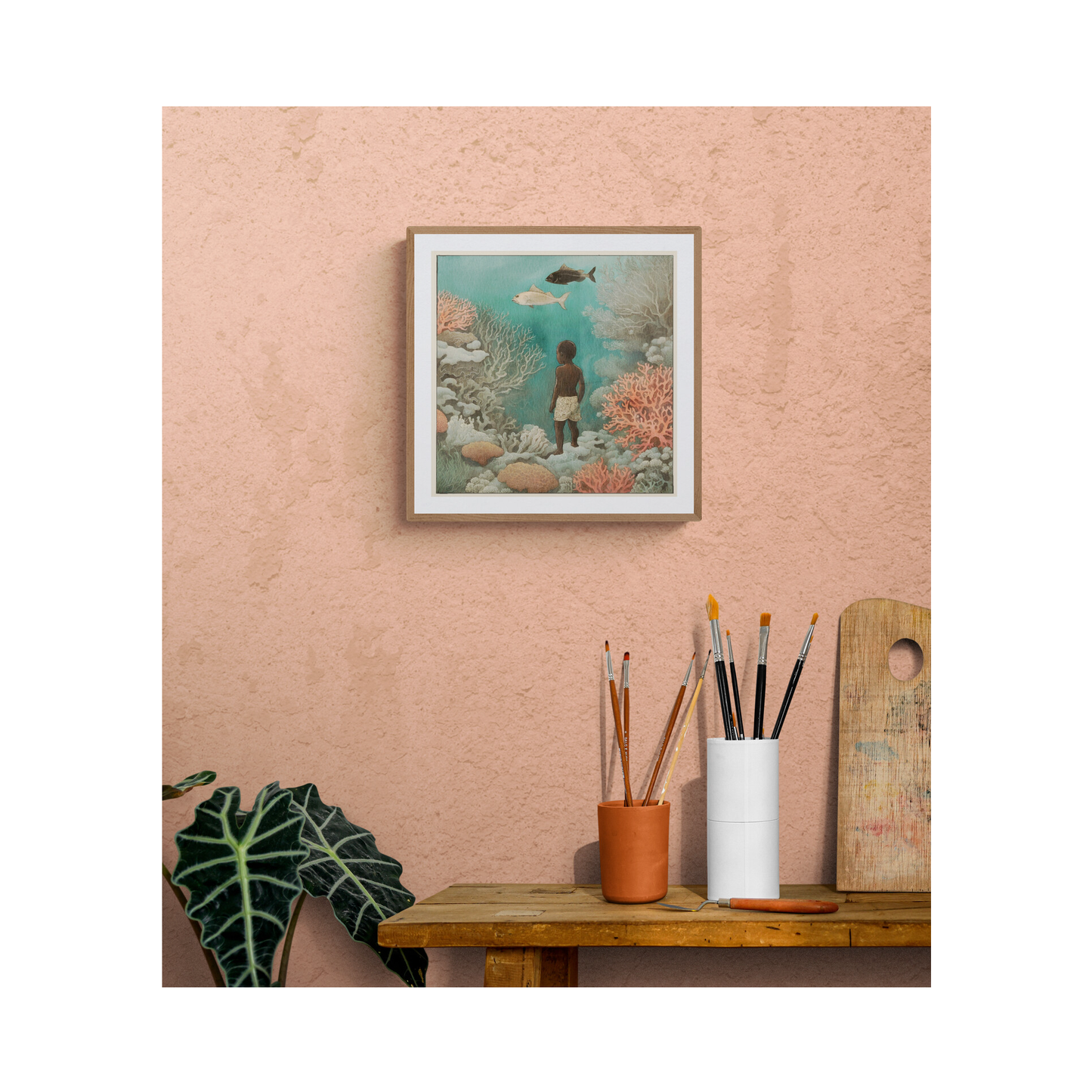Isibaya 3
In this series McGarry uses Japanese Woodblock landscape art, famously known as "ukiyo-e," as a practice-based framework through which to understand the intricate web of human-nature relationships in the South African context, where the scars of colonialism have etched deep dualisms between the two.
"Ukiyo-e," holds a profound reverence for nature and the transitory nature of existence. The original artform depicted Japan's serene landscapes. The inclusion of human figures within these landscapes was deliberate, portraying them as small, humble, and often on the periphery. This artistic choice underscored a profound reverence for the natural world, where humans were perceived as embedded within the larger wisdom of ecosystems.
In the South African context, McGarry has harnessed the essence of ukiyo-e to reflect upon the human-nature dualism scars etched by the enduring impact of colonialism on the continent's ecosystems and indigenous communities. My adaptation of ukiyo-e philosophy takes inspiration from the "isibaya" or "fish-kraals" practices of northern KwaZulu-Natal (KZN). These practices are deeply rooted in the rich tradition of making fish traps, each with its own cosmological significance. Isibaya are intertwined with songs, stories, and rituals that guide the community's customary practices, nurturing a deeply relational and reciprocal relationship between families and the more-than-human world of the ocean and lagoon. In IsiZulu, there is no historical equivalent to the Western notion of conservation.
"Ukiyo – Isibaya" is an ongoing practice-based research creation project, seeking to develop an understanding of the ways in which our relationships with each other and the natural world can be nurtured and restored. It occupies the tension between the reverence and sacredness of our extended ecological bodies, while also acknowledging how ecosystems have been weaponized by colonial projects. This hybrid philosophy of ukiyo-isibaya is employed to address the complex web of human-nature relationships in the African context while acknowledging the enduring legacy of colonialism.









